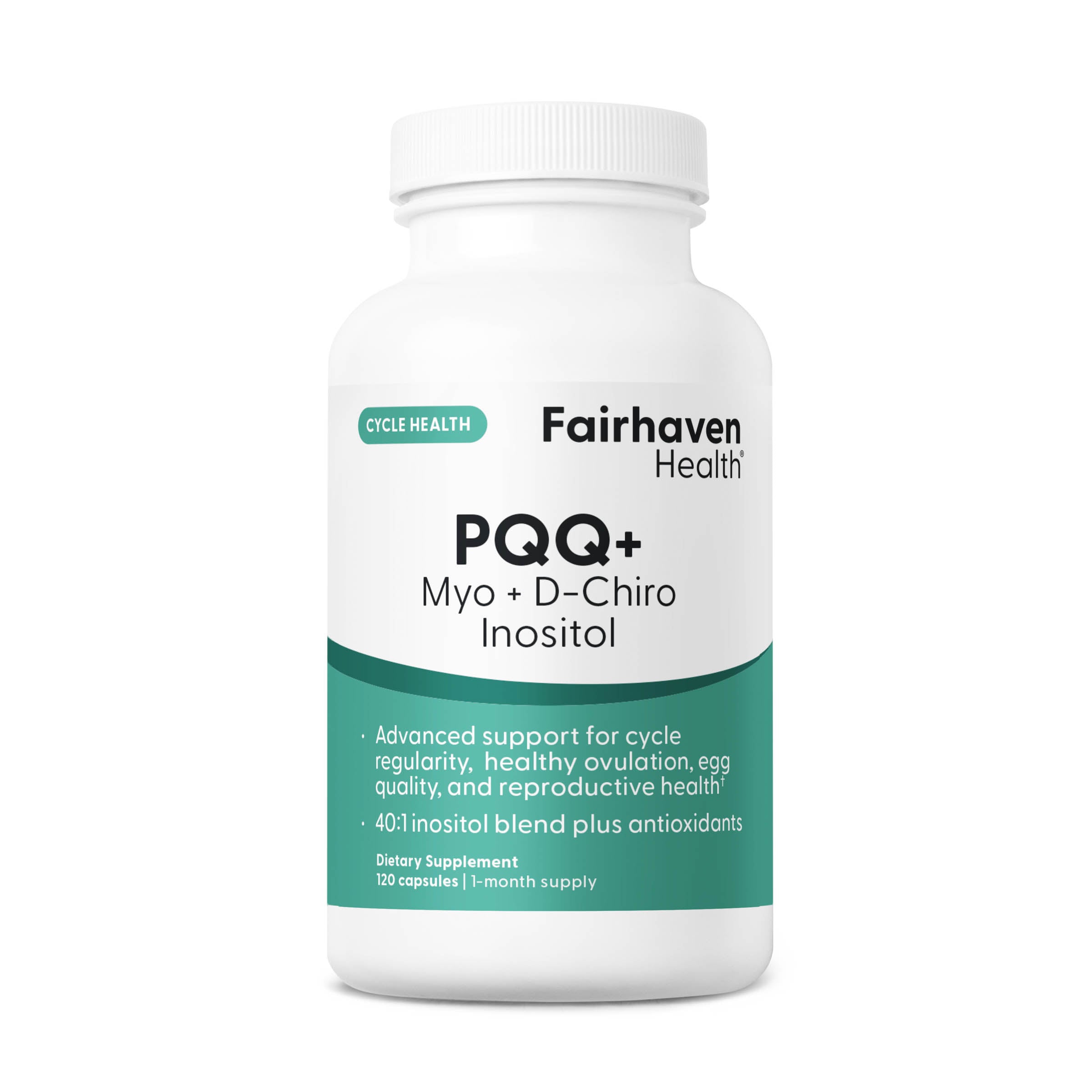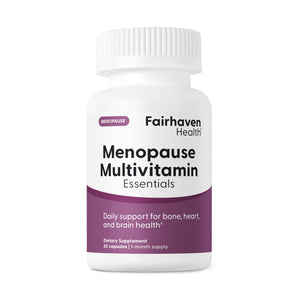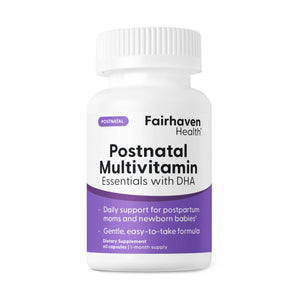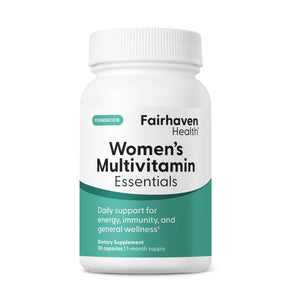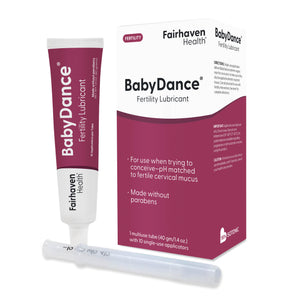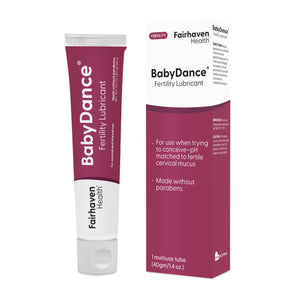By Avni Dalal, ND
Women’s nutritional needs evolve throughout their lives, with different stages requiring tailored support for various aspects of whole-body health and well-being. Multivitamin supplements formulated specifically for women’s needs can provide essential nutrients to promote everything from reproductive health to bone density and hormone balance.* Whether you’re a young adult seeking to maintain general health, planning for pregnancy, recovering postbirth, or navigating the changes of menopause, learning how to choose the right multivitamin can make a significant difference in your health.
In this blog, we will explore the importance of different multivitamin formulations designed to meet the specific nutritional needs of women at different life stages: general women’s care, prenatal, postnatal, and menopause.
Multivitamins for General Women’s Care
For women in their reproductive years, a daily multivitamin can be a good foundational building block in a supplement regimen. In fact, the 2020 USDA Dietary Guidelines found, on average, that 30% of the US population have nutrient intake gaps and are at risk of at least one vitamin or mineral deficiency.1 These multivitamins are often rich in essential nutrients that support energy and hormone balance, bone and heart health, antioxidant status, immune function, and eye health, including nutrients like methylated B vitamins, vitamin D3, CoQ10, magnesium, iron, and lutein.*
- Methylated B vitamins: These water-soluble vitamins, particularly B6, B12, and folate, are crucial for maintaining healthy energy levels and hormone balance, and aiding in red blood cell production.*
- Vitamin D3 and K2-7: Both are necessary for bone health, which is particularly necessary for women as they tend to lose bone density with age.* Vitamin D also supports immune system health and mood regulation.*
- Lutein and zeaxanthin: These two antioxidants protect eye health from oxidative stress and blue light exposure.*
A general multivitamin can provide a strong nutritional base to support anyone managing their busy lives while also promoting long-term health.
Prenatal Multivitamins
When planning for pregnancy or expecting a baby, nutritional needs shift significantly, and taking a prenatal vitamin becomes requisite. Most prenatal vitamin formulations are designed to support the health of both the mother and the developing baby by providing vital nutrients that support fetal development and reduce the risk of birth defects.* Here are some important nutrients to be on the lookout for in a prenatal vitamin that promote the best possible outcomes for both mother and baby:
- Choline: This mineral plays a crucial role in fetal brain and central nervous system development, aiding in cognitive benefits for the baby.2,3,4
- Omega-3 fatty acids (DHA): DHA, a type of omega-3 fatty acid, is crucial for the baby’s brain and eye development, promoting cognitive function and visual health.5
- Myo-inositol: Myo-inositol is a vitamin B-like compound that supports balanced glucose metabolism, which is helpful for healthy gestational term, development, and birth weights.6,7
- Folate (folic acid): Adequate folate in healthful diets may reduce a woman’s risk of having a child with a brain or spinal cord defect.2,3,4
- Iron: Iron helps support increased blood volume during pregnancy, ensuring proper oxygen transport to both mother and baby to meet increased demands.8
Postnatal Multivitamins
You’ve heard of prenatal care, but what about after the baby is born? This too is an important time, as a woman’s body requires additional nutritional support to recover from childbirth and maintain her energy, particularly if breastfeeding. Postnatal vitamins are formulated to meet those demands, helping you restore nutrient levels depleted during pregnancy and supporting lactation. Look for:
- Selenium and iodine: These two vitamins support mother’s thyroid health, which is at higher risk during the postpartum period.*
- Iron: Iron is a helpful nutrient, especially in postpartum care, because it replenishes iron stores that were depleted during childbirth and can support the mother’s energy levels, cognition, and mood.*
- Methylated B vitamins: As covered before, the B vitamins are vital for promoting mother’s overall health, positive energy, and mood response while also supporting baby’s growth and brain growth and development.*
- Human milk oligosaccharides (HMO)†: This unique ingredient supports the baby’s growth and acts as a prebiotic in the baby's gut—promoting a healthy microbiome for immune system development and protection while also supporting mom’s gut health and immunity.*
- DHA and choline: These are two essential nutrients that work synergistically to support baby’s neurocognitive development and growth rate as well as mother’s positive stress and mood response.*
Multivitamins for Menopause
Menopause marks another significant stage in a woman’s life, where nutritional needs shift once again. Due to declining estrogen levels, peri- and postmenopausal women have a 260% increased risk of developing cardiovascular disease or osteoporosis or experiencing cognitive decline.* Multivitamins formulated for menopause support these changes by focusing on bone, heart, and brain health.
- Vitamin D3 and K2-7: These vitamins are especially important during menopause to help maintain strong bones and promote proper bone mineralization.*
- Berberine and green tea extract: Berberine supports healthy blood sugar levels and cardiometabolic function, while green tea extract provides antioxidant protection for heart health.* Both work to maintain normal blood sugar balance and healthy lipid profiles.*
- Methylated B vitamins: Methylated B vitamins boost energy production, support neurotransmitter production, and foster healthy mood states.*
- Betaine HCl: This nutrient promotes healthy homocysteine levels, which are necessary for cardiovascular health and function. It also offers methylation support to maintain cognitive health during menopause.*
Summary
At every stage of life, women have unique nutritional needs, and the right multivitamin can provide the essential support to optimize health and well-being. From a general women’s formula that supports energy and foundational health to prenatal vitamins that promote healthy fetal development to postnatal formulations that aid in recovery and lactation and finally to menopause-specific multivitamins that target bone and heart health, these formulations are crafted to address our changing needs.
Choosing a high-quality multivitamin that matches your life stage is an investment in your long-term health, so remember to always consult a healthcare provider to determine the best one for you!
†Not sourced from human breast milk
References:
1. Dietary Guidelines Advisory Committee. 2020. Scientific Report of the 2020 Dietary Guidelines Advisory Committee: Advisory Report to the Secretary of Agriculture and the Secretary of Health and Human Services. U.S. Department of Agriculture, Agricultural Research Service, Washington, D.C.
2. Schwarzenberg S et al. Pediatrics. 2018;141(2):e20173716.
3. Derbyshire E et al. Nutrients. 2020;12(6):1731.
4. Trujillo-Gonzalez I et al. FASEB J. 2019;33(8):9194-9209.
5. Mun J et al. Nutrients. 2019;11(5):1125.
6. Vitale SG et al. Intl J Endocrinol. 2016(8085):1-9.
7. Zheng X et al. Medicine (Baltimore). 2015;94(42):e1604.
8. Gonzalez-Campoy JM et al. Endocr Pract. 2013;19 Suppl 3:1-82.
